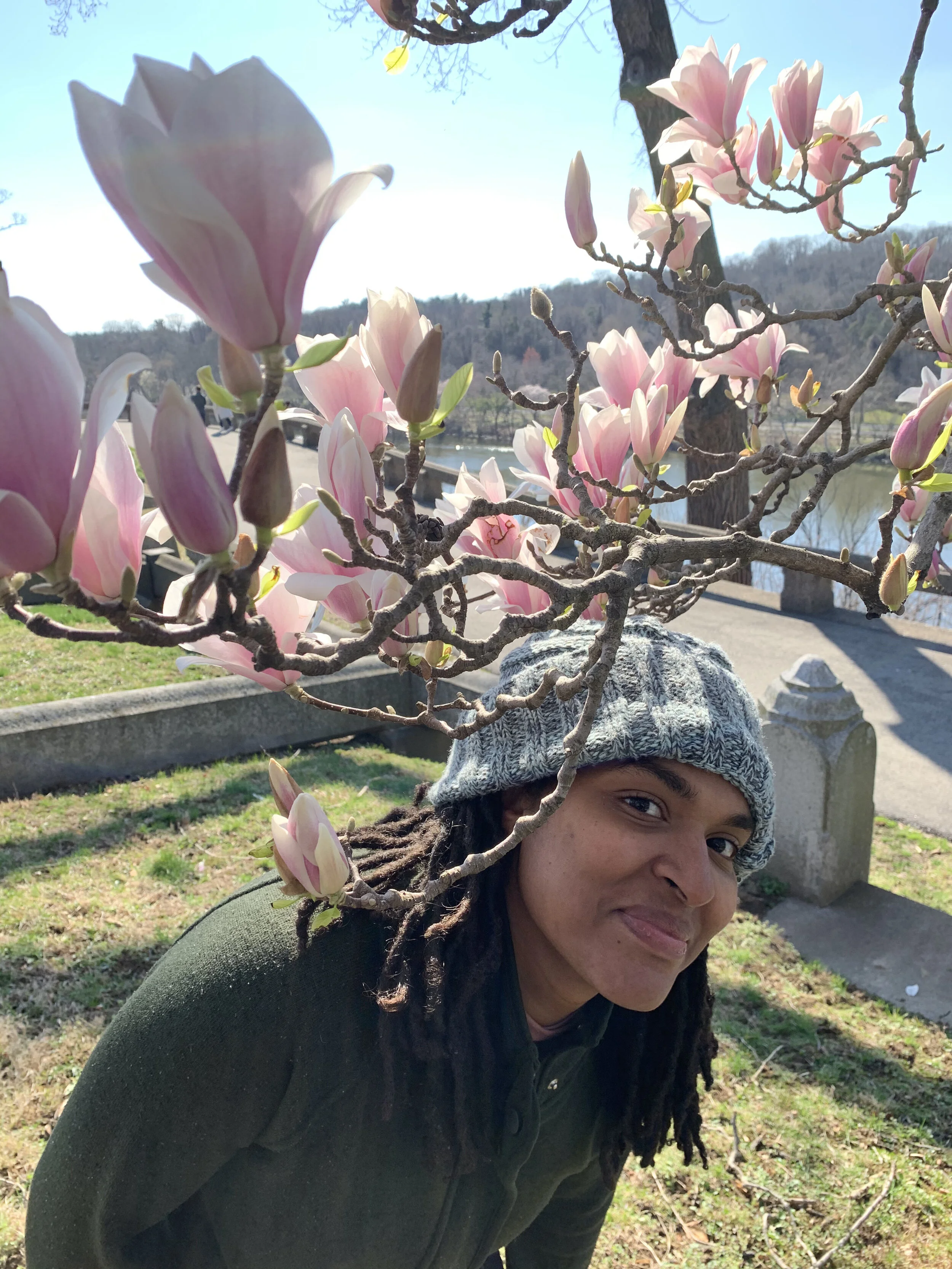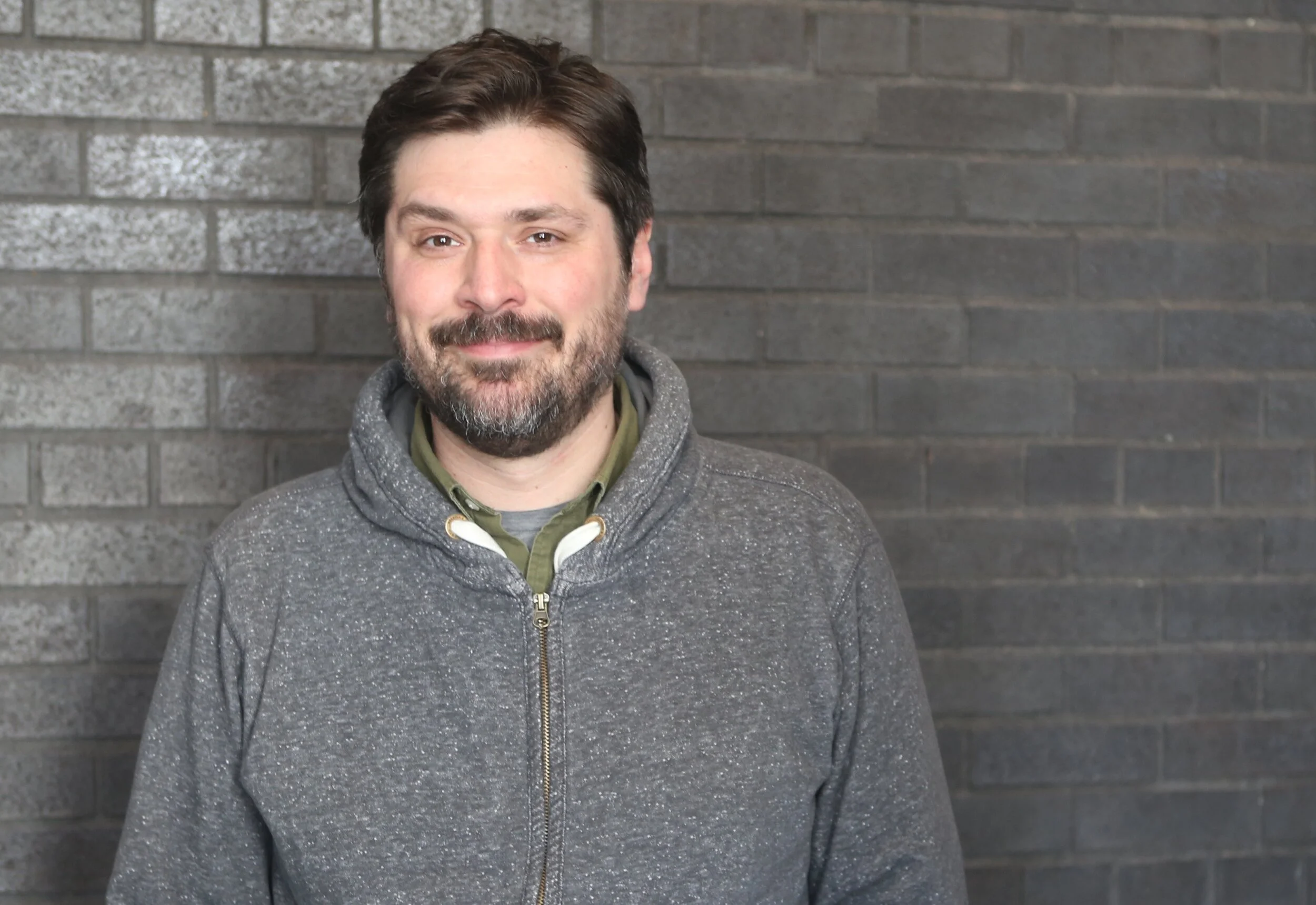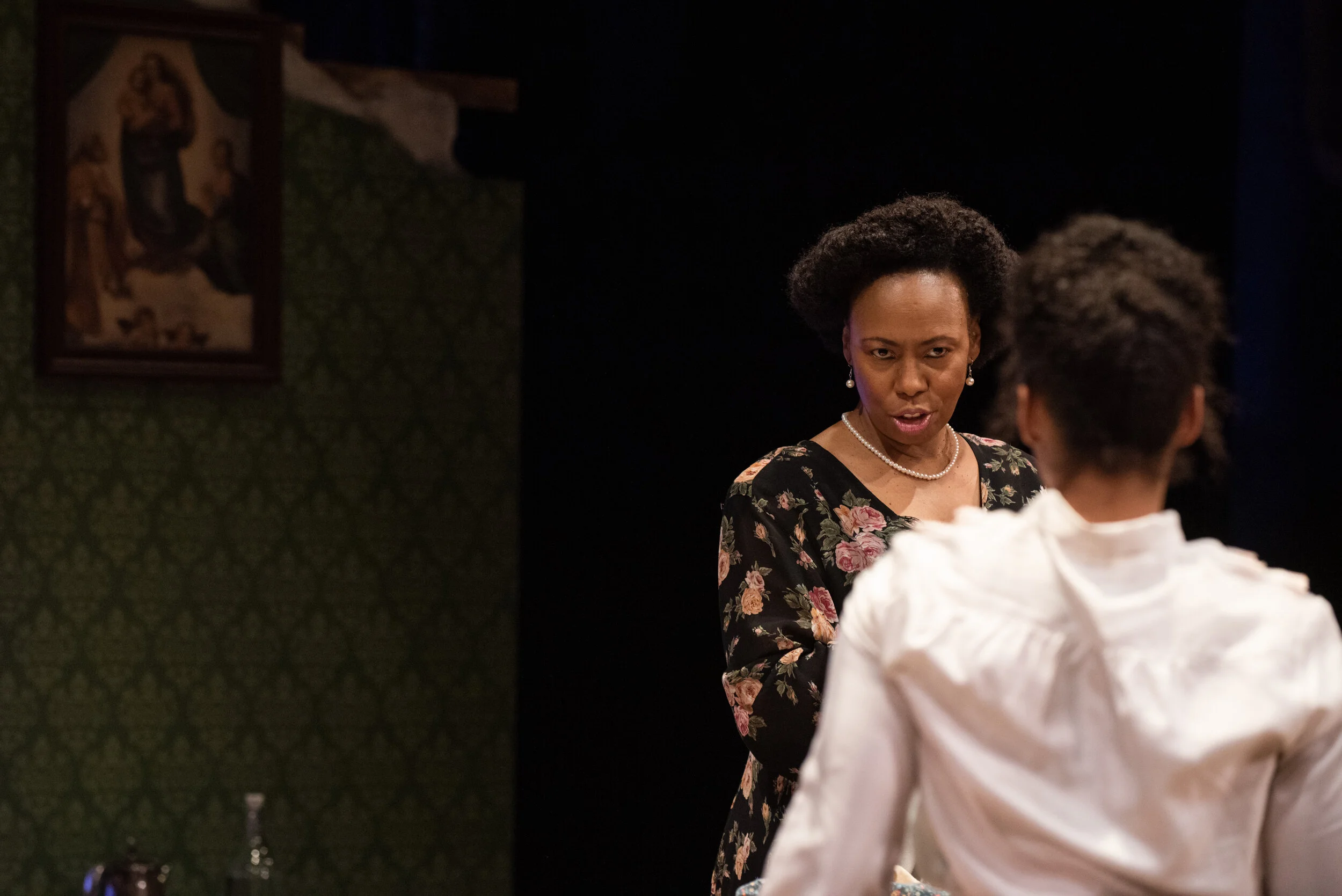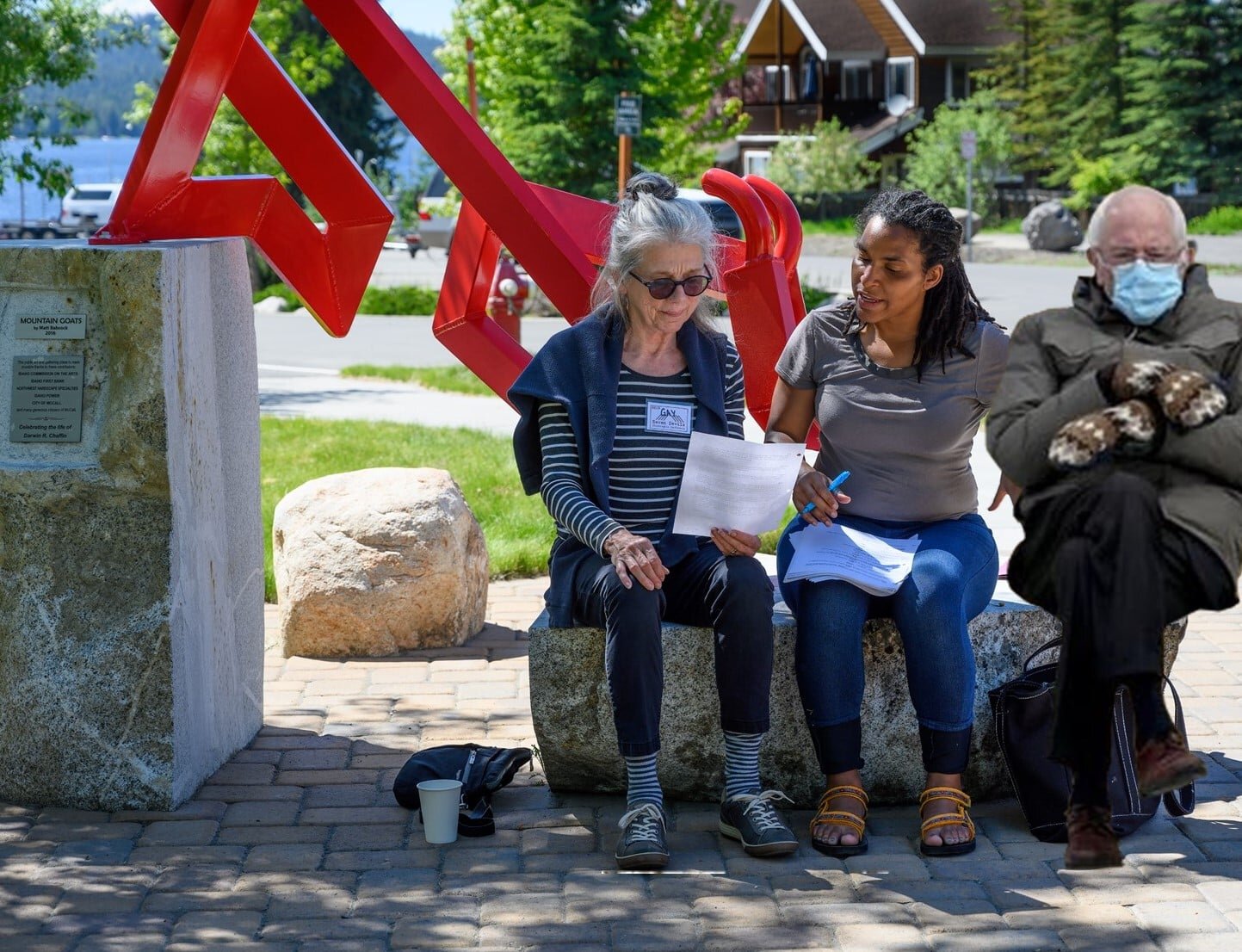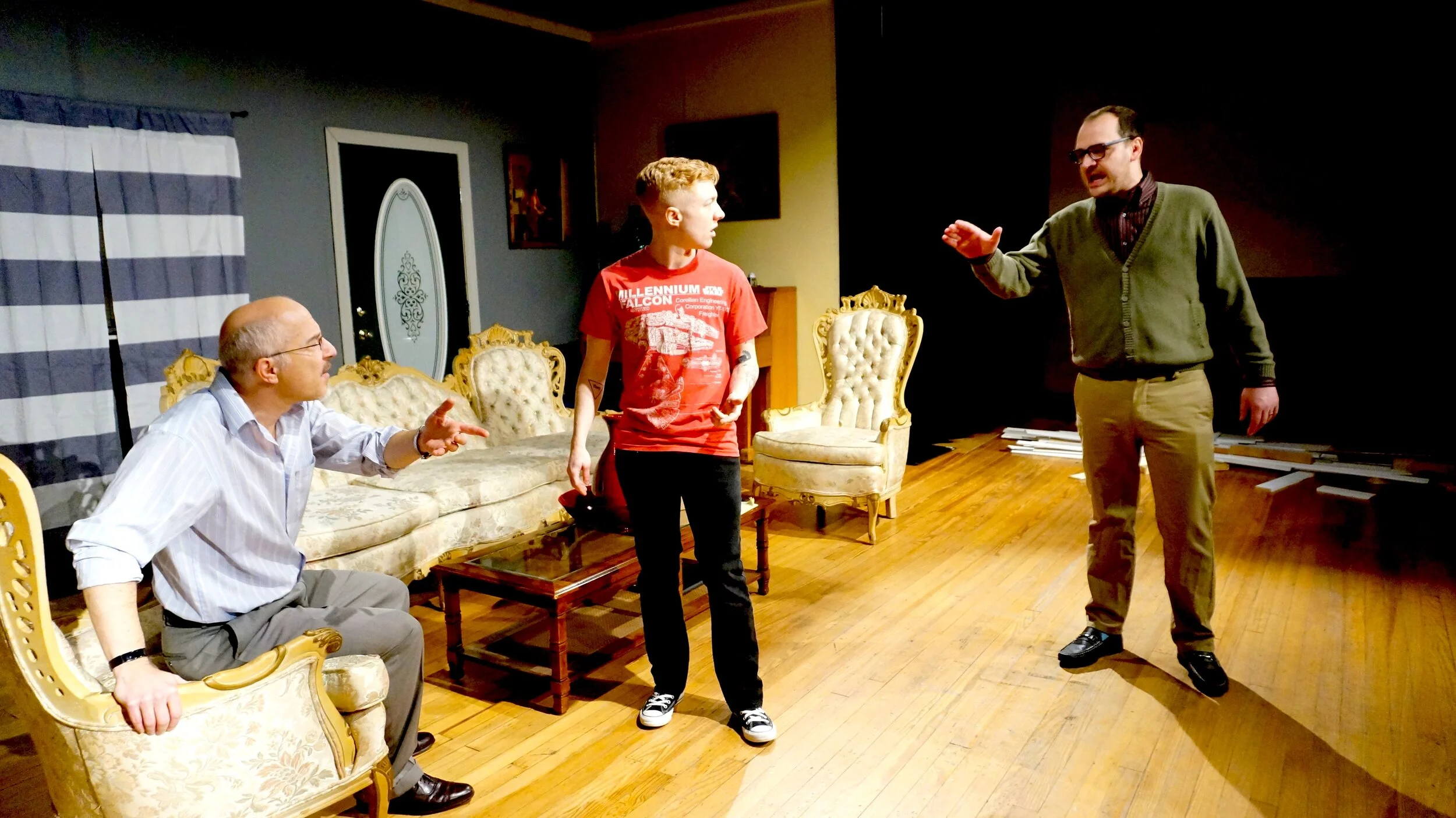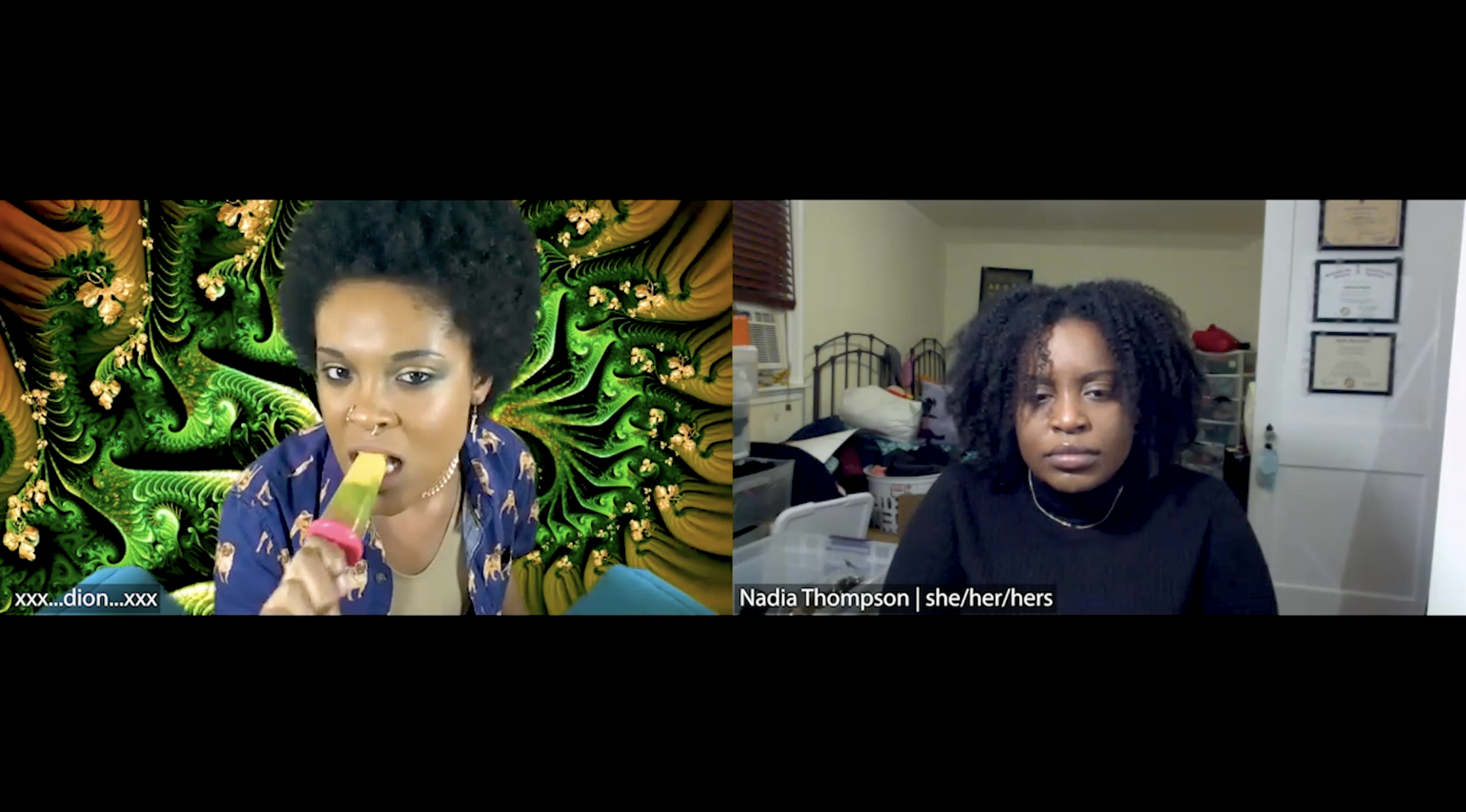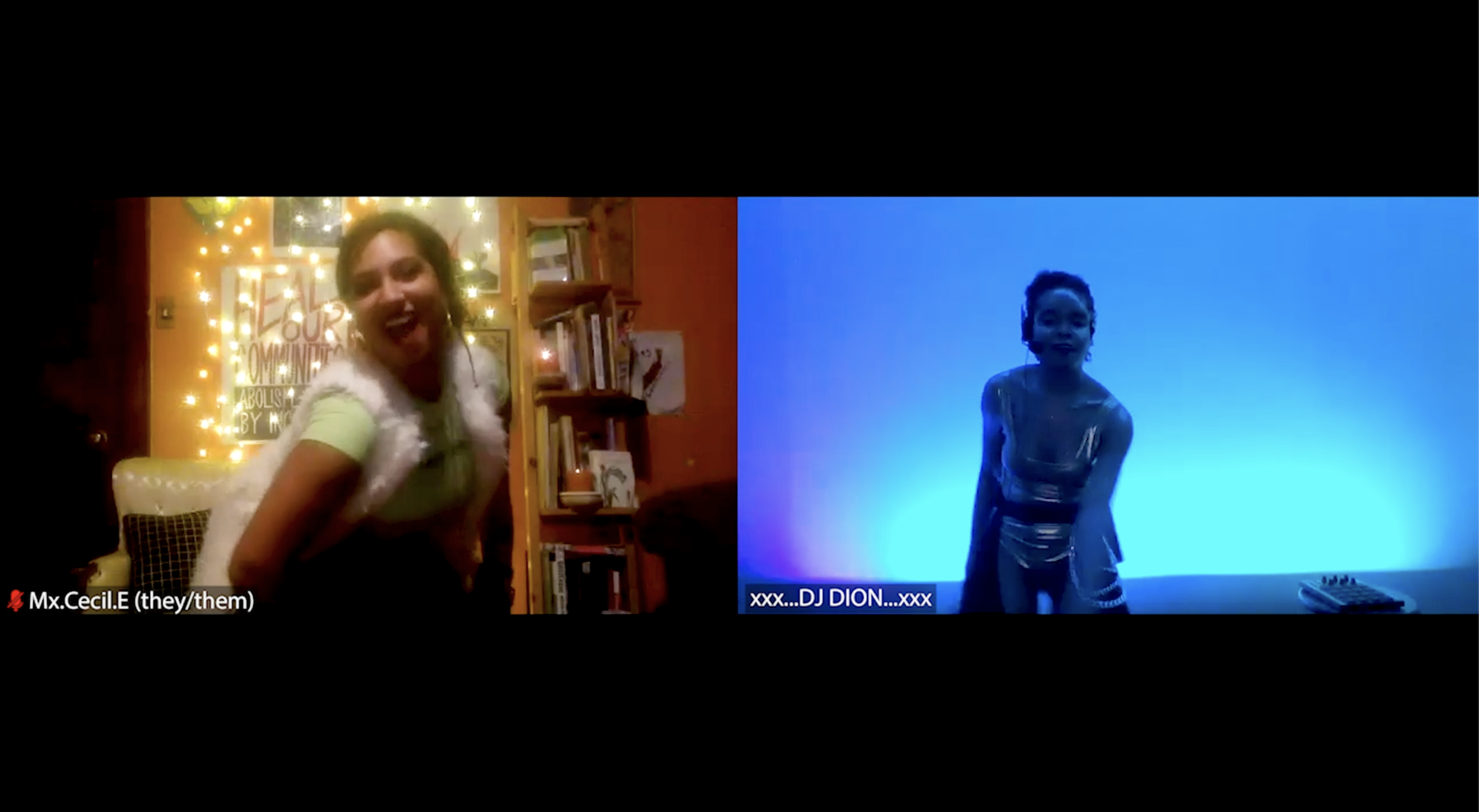Playwrights on Playwrights (Part 2): Alexandra Espinoza and Bruce Walsh
Alexandra Espinoza
Azuka friends and family —
Happy New Year! We hope you are well and staying safe, as we reflect on all that 2020 brought and look ahead to 2021. At Azuka, even without productions this season, we are proud and excited to be continuing to hold space for our playwrights’ group New Pages, especially with the group’s new fearless leader Quinn Eli at the helm! To help you get to know Quinn and all of the New Pages members better, Playwrights on Playwrights will feature all six of them, as interviewed by people who can really dig into their artistic processes — each other!
Bruce Walsh
Part 2 of 3 features Alexandra Espinoza and Bruce Walsh. Alexandra (she/her/Mx) makes plays as a playwright, performer, director, dramaturg, and more. Her playwriting credits include exxx…stasis, exxx…hale… (Villanova Theatre), HOMERIDAE (Theatre Exile Studio X-hibition 2020), and PERIL’s ISLAND, commissioned by Shakespeare in Clark Park in residence at Harrowgate Park in North Kensington. Bruce’s (he/him) work has been featured locally at Azuka Theatre, Philly Fringe, Live Arts, and FringeArts Festivals — and beyond at Outpost Repertory Theatre, Fat Turtle Theatre Company, Actors Theatre of Louisville, and The Kennedy Center for the Performing Arts.
So, without further ado…
When Lucas gave us the opportunity to do a blog post together, Bruce valiantly put on his arts journalism hat to ask Alexandra some questions about her biography. Given the existential nature of our current times, we ended up talking about First Communions, Theatre as Church, and other everyday subjects. Enjoy!
ALEXANDRA: I think I’d like to write every day, but I’ve found that I need something I’m working toward – something with purpose and accountability – in order to get to it. What about you? Are you project-based, or do you write every day?
Production still of Zuhairah McGill and Jessica Johnson (from the back) in the production of Rachel by Angelina Weld Grimke Alexandra directed at Quintessence in February 2020 // Photo: Linda Johnson
BRUCE: I’ve been a write-everyday person for about ten years. Before that I was very project-based. My first Equity production bombed; at some point after that I starting writing every day, just to write, putting the result out of mind as best I could. That sort of saved me. When I was an arts reporter, I interviewed the playwright Thomas Gibbons, who had a ton of stuff done at InterAct in Philly. He had a day job in medical writing; he would get up at like four a.m. and write until he had to get his train to work.
ALEXANDRA: Yeah, I’m trying to be that person.
Alexandra, dramaturg Gay Smith, and a special guest at Seven Devils Playwrights Foundry in 2019 for a reading of Homeridae // Photo: Sarah Jessup; Meme: director Jeni Mahoney
BRUCE: I remember he said, “it’s just of matter of putting ‘first thing’s first.’” And I thought, if he can get up at four, surely I can get up at nine and do some creative writing before my work-writing. So I managed to get up at ten and get to it first thing. For me, the daily practice has a way of taking all the bullshit out of it – all the impure reasons writers are driven to write, and there are many. Because in order to do it, you experience a continual return – you write when you’re inspired, bored, passionate, depressed… It’s like prayer, I think, good prayer, anyway, when we don’t make prayer yet another vehicle for obtaining a warm, pleasant feeling. But here I fear I’m veering off. Sorry. Anybody that knows me, knows I just can’t help mixing the writing process with my religious experience.
ALEXANDRA: My relationship to divinity is a lot more decolonized now, but you’re among friends, I was the first female alter-server at my church. I totally wanted to be a priest and had no intention of being a nun. So I want to say I get it. In a lot of ways theater is the religion I thought I was getting from Catholicism. Church was the place where I got to be in touch with ecstasy – these heightened emotions that come very naturally to me, but were not present in my life. The story of Jesus totally tantalized me as a child – the magic imbued in his whole story. The other thing that’s never left me from church is this deep need to be good. And to be of use, to be useful, and good for a collective. I’ve only really found that in art – community, symbolism, feelings of collective consciousness, mythology, pageantry, ritual, and how I, personally, can be of use. That’s a lot of what theater is for me.
(L - R) Craig Kemp, Evren Wilder, and Zachariah Stonerock in Prospect Hill, by Bruce Walsh, produced by Fat Turtle Theatre Co., Indianapolis, IN.
BRUCE: I’m struck by your commitment to being useful. I know your grandfather was an Anglican Vicar. My son watches a lot of Thomas the Train, written by an Anglican Vicar; the whole thing is how to make yourself a “useful little engine.”
ALEXANDRA: Oh, trust me, yeah, that was the family credo: “To whom much is given, much is expected.” I feel very lucky now that I’m living in a body and in a time where activism and art go hand in hand. I am a Black Queer Latinx person who has experienced a lot of oppression, and I’ve also experienced a lot of privileges, like access to creativity, and as a member of identity groups that are deeply oppressed, being creative is useful in and of itself. So the fact that it’s what I really love to do is really convenient. I feel really lucky in that sense. And because of the moment we’re in, it’s not something I’ve had to justify as much as earlier times in my life. But I definitely had to struggle with this topic. I’m someone who has had relationships with people who didn’t think there was any use in what I did. That was really harmful to me – something I’ve had to fight against. But I do think, on a philosophical level, art should be useful. I actually have to work hard to make space for that not being true for everyone – of it being a matter of personal perspective, but it’s very true for me. I don’t think I could make the things I make if I didn’t think they were useful. But I also struggle with it. I’m trying to look for a little more balance. The play I was just commissioned to write by Villanova… It was the first time that I required of myself that I put pleasure first in the writing process. And it really paid off. I think because of the life I’ve lived, putting pleasure first is ultimately very useful. I wrote specifically from the perspective of being a Black Queer person. There are a lot of BIPOC Queer people in need of joy and pleasure right now. And so the play got to be a source of joy and pleasure. So lately I’ve been trying to broaden my horizons when it comes to pleasure, and usefulness, and joy.
Screenshot of Alexandra’s play "exxx...stasis, exxx...hale..." virtually produced by Villanova Theatre // Actors: Ang Bey (left) Breyana McGriff (right) // Photo: Hezekiah Lewis (director of photography)
Screenshot of Alexandra’s play "exxx...stasis, exxx...hale..." virtually produced by Villanova Theatre // Actors: Jackie Soro (left) and Ang Bey (right) // Photo: Hezekiah Lewis (director of photography)
BRUCE: Yeah, I really struggle with the usefulness question, too, especially now, because I have a family, and I’m accountable to a lot more than before. But I notice when I’m using that word with myself – usefulness – it usually comes from a voice within that takes a pretty hardline, material approach to the world. Lately, I’ve been reading a little Thomas Merton before I start writing. (That sounds really pretentious, but there it is.) He continually reminds you that to be a saint ultimately means to be who God intended you to be – not any other person, not even if the person you’d prefer to imitate is an actual saint. Because that would be a rejection of God’s will. I think now that my inability to see the usefulness of this creative part of myself is ultimately a rejection of what God made me to be. Like there’s a hardline part of myself that only feels it’s useful if I’m produced widely, or famous, or I can make some material progressive change through it. But when I allow that God may value my “little” contributions exponentially more than I do, I am better able to notice the value of others, and I’m far less dismissive of them. I also find I’m a better responder for other writers. When you take the time to really think about and consider someone else’s play, you offer them a lot. So I guess right now my answer to that existential dilemma is to, as much as I can, facilitate other people’s writing. I help lead a writer’s circle; I try to read and respond to others’ work; I’m a slow reader, but I try.
ALEXANDRA: I think, for me, usefulness is something that benefits a collective. But what you just said makes me think that really, any writing exercise is something that benefits a collective. I learned so much about what I’m trying to accomplish with dreams in my play (Solly Dreams in Spanish) by reading your play (Essential Reading for this Moment in History). So, I think that even in that way what we do is useful, because it’s communication and it’s honest. When you honor that thing within you that’s not super cute, not super perfect… Whatever the thing is you’re trying to expose and give life to, there’s somebody, somewhere who will be validated by that exposure.
Thank you both! And thank you, readers, for checking in. Our third and last conversation will be between New Pages playwrights Doug Williams and Erlina Ortiz — don’t miss it!

